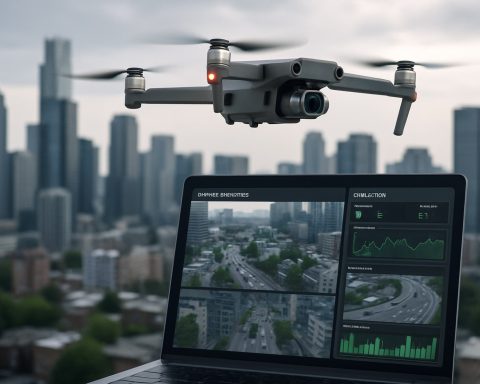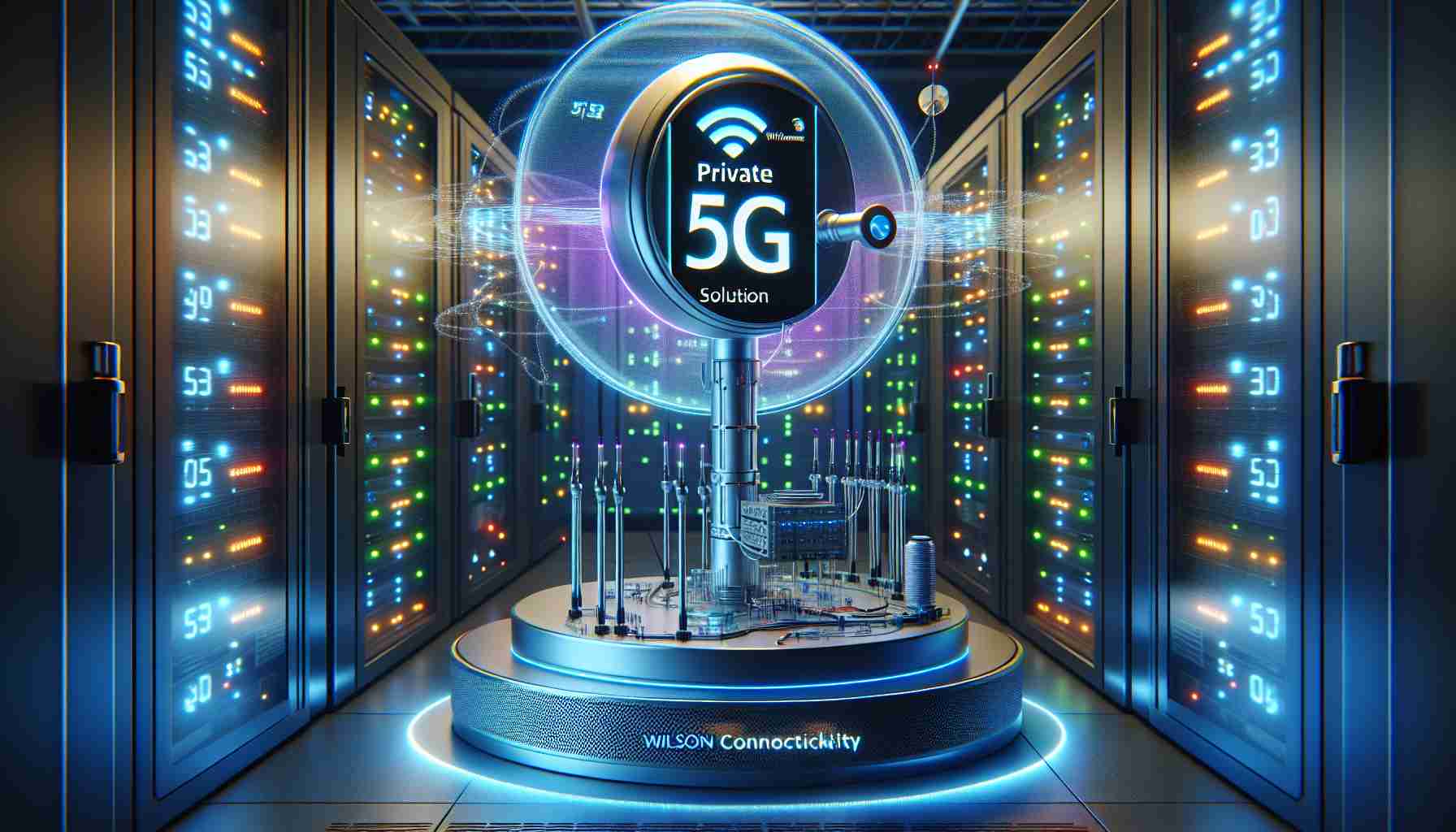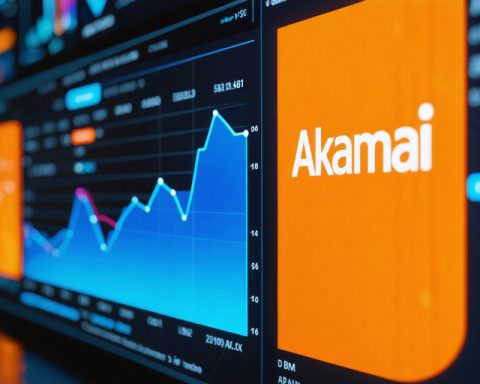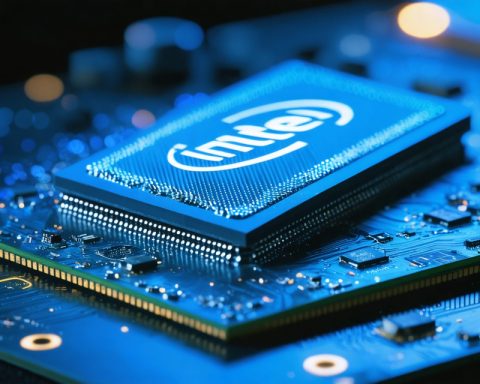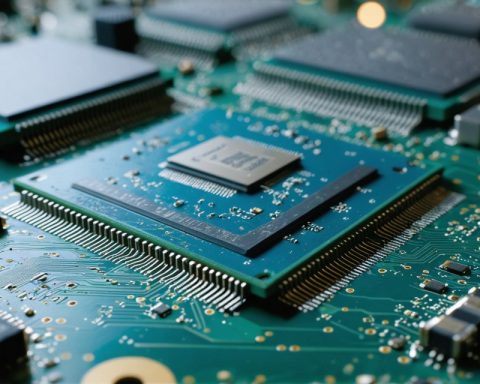Nokia has launched an impressive share buyback initiative that showcases its steadfast commitment to enhancing shareholder value. This strategic programme, which began on 25 November 2024, underpins the company’s ambition to acquire a staggering 150 million shares with a financial cap of €900 million. The recent approval for this plan was granted during Nokia’s Annual General Meeting held on 3 April 2024, ensuring that the buyback will continue until at least 31 December 2025.
Following their latest financial manoeuvres, Nokia has accumulated a total of 229,091,173 shares in its possession, further solidifying its position in the market. This buyback initiative is a clear indication of Nokia’s proactive approach to optimising its capital structure.
Leading the charge in B2B technology, Nokia is at the forefront of innovation, developing intelligent networks that adapt to emerging demands. The company’s expertise spans fixed, mobile, and cloud networks, supported by the cutting-edge initiatives of Nokia Bell Labs. Their commitment to research and development empowers them to capitalise on intellectual property and deliver top-tier network solutions.
Nokia is highly regarded by service providers, corporate enterprises, and global partners for its reliability and security in network performance. The company is dedicated to partnering with others to advance next-generation digital services and applications, promising exciting opportunities ahead for both users and stakeholders alike.
Nokia’s Strategic Share Buyback: A Future-Oriented Perspective
Nokia has recently initiated a substantial share buyback programme aimed at reacquiring 150 million shares for up to €900 million. This programme, which commenced on 25 November 2024, and is set to run until at least 31 December 2025, demonstrates Nokia’s unwavering commitment to enhancing shareholder value and optimising its capital structure. During its Annual General Meeting on 3 April 2024, the company secured the approval needed for this initiative, firmly positioning itself in the market with 229,091,173 shares in its portfolio.
This strategic financial move is not just a demonstration of corporate agility; it reflects a broader commitment to innovation and market leadership in the B2B technology sector. Nokia is leveraging its expertise in intelligent networks, providing critical solutions across fixed, mobile, and cloud infrastructures. By investing in research and development through Nokia Bell Labs, the company positions itself at the cutting edge of technological advancements.
Environmental and Societal Impact
While share buyback initiatives are primarily financial manoeuvres, they carry implications that extend to environmental sustainability, economic stability, and the future of digital connectivity. Nokia’s focus on intelligent networks and next-generation digital services positions it as a pivotal player in the telecommunications sector, a critical infrastructure responsible for connecting people, businesses, and industries.
Environmental Considerations
The development and implementation of intelligent networks can significantly influence environmental sustainability. By optimising network performance and reducing energy consumption, Nokia contributes to lowering the carbon footprint associated with telecommunications. Efficient networks not only reduce operational costs but also promote sustainable practices across various sectors that depend on robust connectivity.
As we move toward a future where climate concerns dominate global discourse, companies like Nokia have the potential to lead by example. The deployment of smart technologies can enhance energy efficiency in buildings and transport, thereby fostering a greener economy. Such advancements could play a critical role in mitigating the effects of climate change, which is an existential threat to humanity.
Economic Implications
From an economic standpoint, Nokia’s focus on enhancing shareholder value through buybacks could be interpreted as a strategic allocation of resources that prioritises immediate returns over long-term investments in innovation. However, if this strategy includes reinvesting back into research and development, the result could propel further advancements in technology that benefit global markets.
The initiative could also signal confidence in Nokia’s future performance, potentially attracting further investments and bolstering the company’s stock prices. As economies worldwide gradually recover and grow post-pandemic, companies that innovate and invest in sustainable technologies will likely position themselves as leaders, creating a ripple effect throughout the economy.
Connections to Humanity’s Future
As we look toward the future, the actions of corporations like Nokia can significantly influence humanity’s trajectory. The integration of advanced digital services into everyday life, facilitated by robust networks, will define how societies operate, communicate, and address challenges such as climate change and economic inequality.
Nokia’s commitment to enhancing network solutions ensures that future generations will benefit from improved connectivity, enabling advancements in telemedicine, education, and remote work environments. These technologies will be instrumental in creating a more equitable society, where access to information and services is not limited by geographical constraints.
In conclusion, while Nokia’s share buyback initiative serves its immediate financial interests, its broader commitment to innovation and network reliability presents numerous opportunities for enhancing environmental sustainability, driving economic growth, and shaping a more connected and equitable future. Companies that maintain a foresighted perspective and prioritise both shareholder value and societal impact will play a pivotal role in guiding humanity toward a sustainable and prosperous future.
Nokia’s Bold Move: Strategic Share Buyback and Innovative Technology Leadership
Nokia’s Strategic Share Buyback Initiative
Nokia recently launched a significant share buyback programme demonstrating its unwavering commitment to maximising shareholder value. This initiative, which commenced on 25 November 2024, aims to repurchase an impressive 150 million shares, with a financial cap set at €900 million. The decision to implement this strategy was greenlit during Nokia’s Annual General Meeting on 3 April 2024, and the programme is designed to extend until at least 31 December 2025.
This buyback move is indicative of Nokia’s strategic approach to optimising its capital structure, allowing the company to reinforce its financial health while simultaneously enhancing shareholder returns. As of now, Nokia holds a total of 229,091,173 shares, further solidifying its standing within the competitive market landscape.
Nokia’s Leading Role in B2B Technology Innovation
Nokia is not just focused on share buybacks; it’s also spearheading advancements in B2B technology. The company is a trailblazer in developing intelligent networks that adapt dynamically to emerging demands within the telecommunications sector. Nokia’s expertise encompasses fixed, mobile, and cloud networks, all of which are bolstered by innovations from its renowned Nokia Bell Labs. This commitment to research and development allows the company to maximise its intellectual property and deliver cutting-edge network solutions that meet contemporary challenges.
Pros and Cons of Nokia’s Share Buyback Programme
Pros:
1. Enhanced Shareholder Value: The buyback programme can lead to an increase in share price and dividends for existing shareholders.
2. Strong Financial Confidence: Indicates a robust financial position and future growth potential as funds are reinvested in the company.
3. Market Positioning: Helps Nokia solidify its position in the market by reducing the number of shares available, thereby potentially increasing demand.
Cons:
1. Opportunity Cost: Funds allocated for share buybacks could be used for other investments, such as R&D or acquisitions.
2. Market Reaction Risk: Depending on market conditions, the buyback might not have the desired effect on share price.
3. Cyclical Impact: In the event of economic downturns, such initiatives may be scrutinised for their timing and justification.
Future Trends and Insights for Nokia
As Nokia pushes the boundaries of network technology, several trends are emerging in the telecommunications field. The increasing demand for 5G and beyond will likely see Nokia continuing to innovate, particularly in areas such as cloud computing and Internet of Things (IoT) applications. The company’s efforts to develop adaptive networks could ensure its leadership in providing next-generation digital services, creating partnerships with service providers, corporate enterprises, and global partners.
Conclusion: A Robust Future Ahead
Nokia’s strategic share buyback initiative signals more than just a commitment to shareholders; it reflects the company’s overall robust strategy for growth and innovation. By continuing to invest in technology advancements and focusing on partnerships, Nokia is set to make significant strides in the B2B sector, paving the way for exciting developments in digital services and network solutions.
For more information on Nokia’s latest initiatives and technologies, visit nokia.com.






